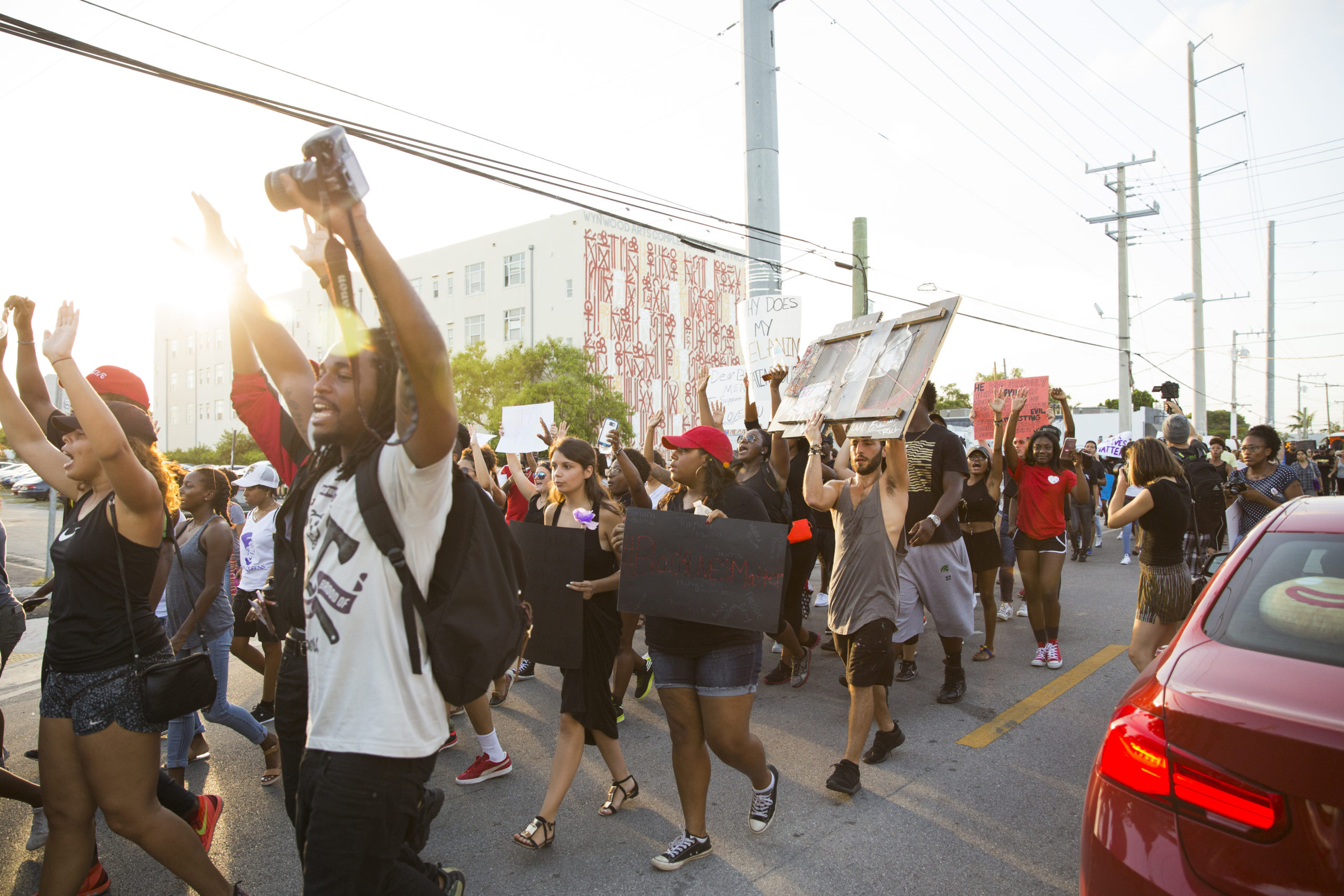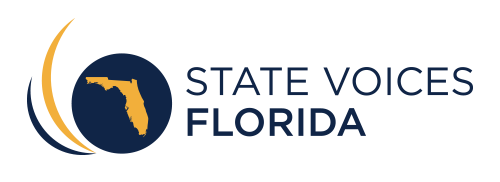
From remnants of Jim Crow-era voter suppression to disinformation operations, the U.S. has yet to see a truly healthy democracy.
That’s where Election Protection comes in. Learn more about Election Protection from our own State Voices Florida Operations Manager, Leonardo Placeres.
Election Protection is a coalition of organizations from across the U.S. fighting to increase access to the ballot box and ensure that every vote counts. Election Protection does this by providing voter education and resources, advocating for election reform, and hosting the Election Protection hotline (866-OUR-VOTE) that voters can call with any issues they may face at the ballot.
With the 2022 midterm election underway, protecting voters and elections is at the forefront of many people’s minds. We spoke with Leonardo from State Voices Florida about his firsthand experience with Election Protection work.
His expertise sheds light on what Election Protection looks like on the ground. Voters, rest assured that people like Leo are doing this vital work to protect your vote!
Q: For readers who are unfamiliar with Election Protection, can you please describe what your role as an Election Protection advocate entails?
Leonardo: Election Protection is a broad category that encompasses a variety of actions. At its base, Election Protection advocates support democracy by protecting access to the ballot for every voter.
Under that umbrella, advocates do everything from recruiting poll workers and poll monitors to educating voters on statewide and local ballot amendments. In Florida, our Election Protection teams also advocate directly to Supervisors of Elections and work to push them toward interfacing now with voters in their respective communities.
By taking this approach, we can protect voters’ rights at every possible level of infringement.
Q: Based on your experience, what is the biggest threat facing the integrity of our elections?
Leonardo: Dis- and misinformation! Recent research suggests that when any of us engages this type of information, it is inadvertently publicly spread to a broader audience.
The folks who combat it are often left in a situation of having to decide whether to ignore dis- and misinformation altogether to avoid amplification or risk amplifying it to debunk myths and lies that have a clear intention of suppressing voter turnout or enthusiasm.
Everyone needs to remember that our elections and democratic norms are only as safe as we believe them to be, and these tactics often confuse voters and contribute to dissatisfaction with our democratic systems.
Q: What is the most challenging aspect of your Election Protection work? What is the most rewarding?
Leonardo: The most challenging part of our work is the county model of elections in this country. Those who don’t follow elections too closely might surprise them to find out that nearly everything about elections in the United States is handled at the county level. Because of this, our country doesn’t have one election; it’s more accurate to say that it has 3100+.
Now, there’s nothing wrong with that in principle. However, in Florida, this does mean that there isn’t a centralized way to administer elections, maintain records and files, and regulate voting and polling place closures. So while local control is appreciated, the time spent studying county-by-county regulations can exhaust resources and slow things down considerably.
The best part about this job is high turnout elections with low ballot rejection rates, or simply put: ensuring more voters successfully participate. I’d like to make it more complicated than that, but I can’t. Our job is to bring more people into the democratic process. We all breathe a sigh of relief when elections are held with high participation, low rejections, and minimal administration problems.
Q: What advice do you have for anyone seeking to get involved with Election Protection advocacy? (on the local, state, and/or federal level)
Leonardo: Find what you’re passionate about and pursue it. I don’t mean that to be a cliché. Election Protection is an incredibly open field that encompasses a wide range of advocacy work.
But that being said, because there is so much to work with, folks need to be mindful of their time. There can be a lot of background work that goes into advocacy, understanding federal, state, and local regulations, and the time sunk into understanding your work on a county-by-county basis can leave you with less time to devote to your cause.
In those rare opportunities with uninterrupted time to focus on making a difference, you’ll want it to be about something you’re passionate about.
Q: What do you think is the most important thing for poll workers/monitors to keep in mind regarding Election Protection?
Leonardo: The sanctity of the voter, of the polling place, and our democracy.
So much time is spent arguing that it becomes easy to miss the deeper meaning of it all. But there’s something deeply sacred about what we as Americans do every four years.
In what will surely be a hectic day on November 3rd, I ask all voters to bear in mind the deeper meaning of it all and the greater purpose that they’re serving.
Q: What is a policy change that you think is viable in solving our election issues?
Leonardo: For Florida, I can think of two policy changes that would help solve our election issues: (1) Expand early voting hours and locations statewide, and (2) Immediately updates and overall maintenance of polling place locations in a statewide database after closures.
Individuals overseeing elections need to raise community awareness when there are closures at polling locations, and this needs to be communicated more freely. Unfortunately, this is a common disenfranchisement tactic and sadly a reality in Florida.
Q: What can people who aren’t already involved in Election Protection work do to help?
Leonardo: Vote and get two of your friends to vote as well. That’s it.
You can volunteer. You can advocate. You can donate. There are tons of things to do, but at the end of the day, the simplest and easiest way to support our work is to ensure that you and a couple of friends vote.
Democracy happens one vote at a time, and every one of us has a role in making sure it happens.
Q: Does your work stop after Election Day? If not, please expand on what you do outside of immediate election cycles.
Leonardo: On a global level, there are always elections that State Voices Florida (SVFL) strives to help out with. There can be recounts or runoffs, but one thing that SVFL can count on is local and municipal and “off-cycle” elections.
Beyond our work in the election protection sphere, SVFL will be focused on registering people to vote and redistricting. Every ten years, state legislatures redraw state and federal representatives’ districts, potentially changing who our representatives are.
Redistricting is critical in making sure every person has fair and equitable representation.
Q: What are 3-5 things you want to make sure voters in your state know to help protect their vote?
Leonardo: I think a few things stand out:
Florida’s vote-by-mail status is as an “Arrive by” state, not a “Postmark” one, meaning that vote-by-mail ballots must physically arrive at their Supervisor of Elections (SOE) Office by 7 PM local time on November 7th;
USPS delays are expected, and SVFL doesn’t recommend voters mail their ballots two weeks before Election Day.
Each voter should remember to sign their vote-by-mail ballot because without a signature, it won’t count;
This signature has to be the official signature on your county’s voter rolls;
Voters can check the status of their vote-by-mail ballot and whether it was received and counted on their county SOE’s website;
Early Voting is open!
We hope you learned more about protecting elections from Leonardo from State Voices Florida. You can learn more about State Voices Florida on Twitter and Facebook at @StateVoicesFL.
